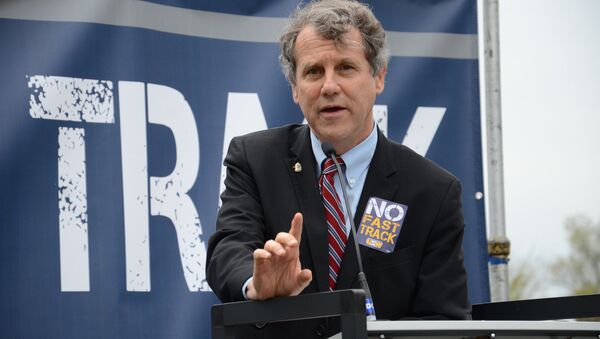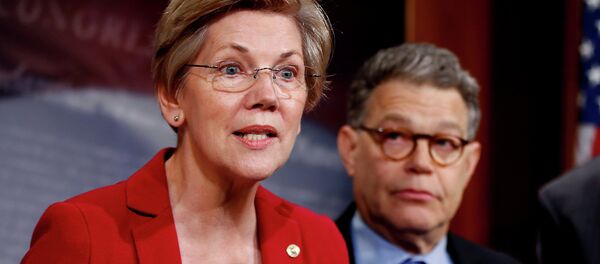Although the 12-nation Trans Pacific Partnership is still under negotiation, Ohio Sen. Sherrod Brown argues that the Obama Administration has made it difficult for lawmakers’ aides to examine the deal by establishing certain requirements such as security clearance and being in the presence of a Congress member while reading the deal’s text.
It shouldn’t be easier for corporations to get their hands on #TPP text than those looking out for American workers. http://t.co/PepQBh780x
— Sherrod Brown (@SenSherrodBrown) August 14, 2015
Brown also said that private sector executives and lobbyists from certain industries have wider access to drafts of the deal than lawmakers because these stakeholders are directly involved in the TPP consultations.
So last week, the Democratic senator issued Obama an ultimatum.
Friday came without action from the White House.
"The administration would rather sacrifice a nominee for a key post than improve transparency of the largest trade agreement ever negotiated," Brown said in a statement. "This deal could affect more than 40 percent of our global economy, but even seasoned policy advisors with the requisite security clearance can't review text without being accompanied by a member of Congress."
Senators may place a “hold” on a nomination as a form of protest and the chamber’s leaders usually honor the move as a matter of courtesy and tradition.
Brown and other critics of the TPP believe the deal could spell disaster for the U.S. economy by flooding American markets with foreign goods forcing domestic manufacturers out of business and Americans out of work.
Brown maintains the Obama administration has made it "easier for multinational corporations to get their hands on trade text than for public servants looking out for American workers and American manufacturers."
Critics cite job losses in relation to the North Atlantic Free Trade Agreement which took effect in 1994, as well as well as the liberalization of trade with China in 2000.
However, the non-partisan Congressional Research Service in April said that trade-related job losses following NAFTA may have been influenced by trends growing before the agreement and not directly attributable to it.
The White House and proponents of TPP argue the deal will expand domestic job opportunities by forcing foreign countries to drop tariffs and ease restrictions that hinder U.S. companies and farmers from exporting.
In June, Congress agreed to fast-track TPP and other trade deals giving Congress the authority to approve these deals but limiting its scope in blocking or amending them.
The White House has said the full-text of the TPP will be available online for all Americans after it’s completed.






